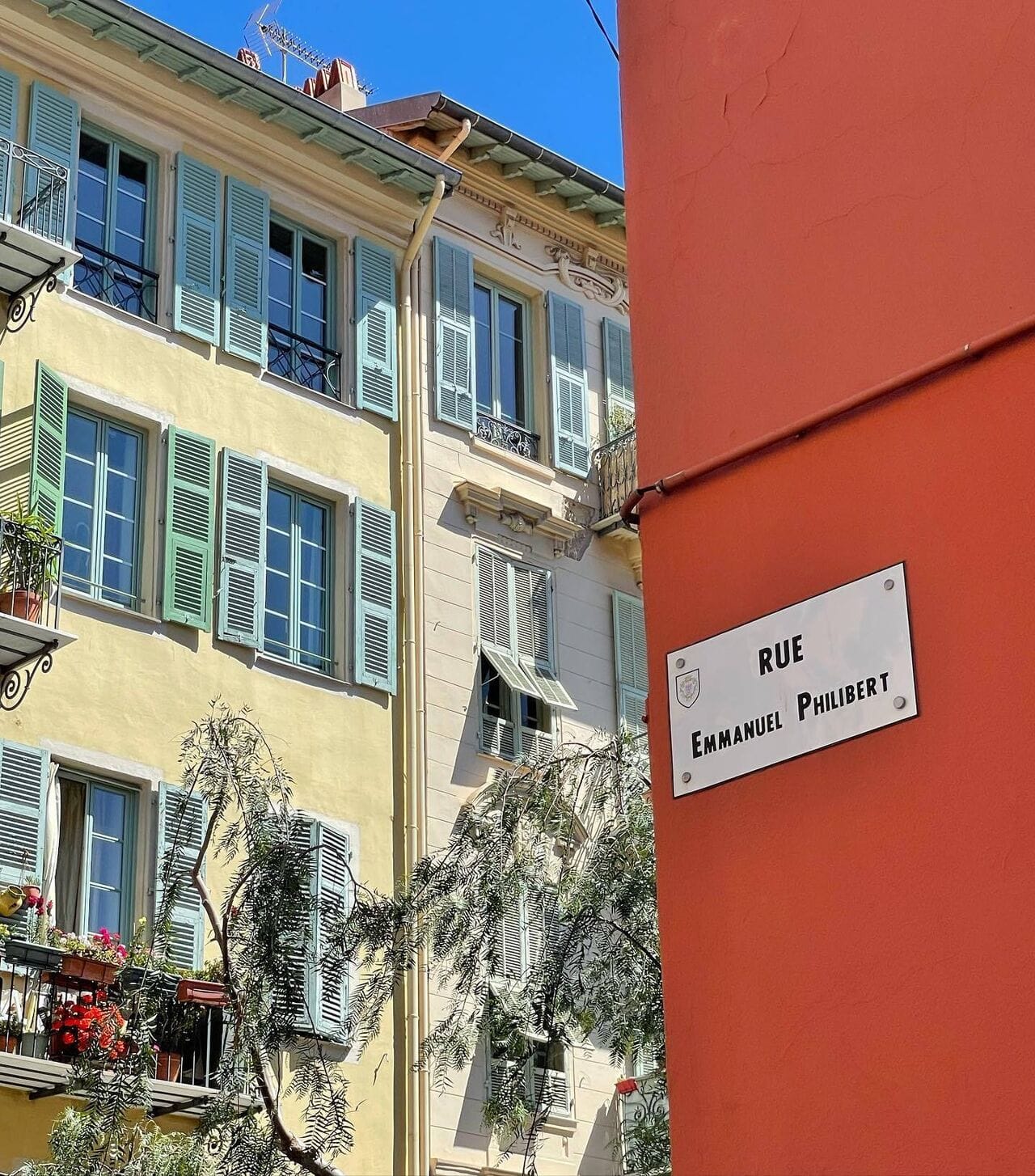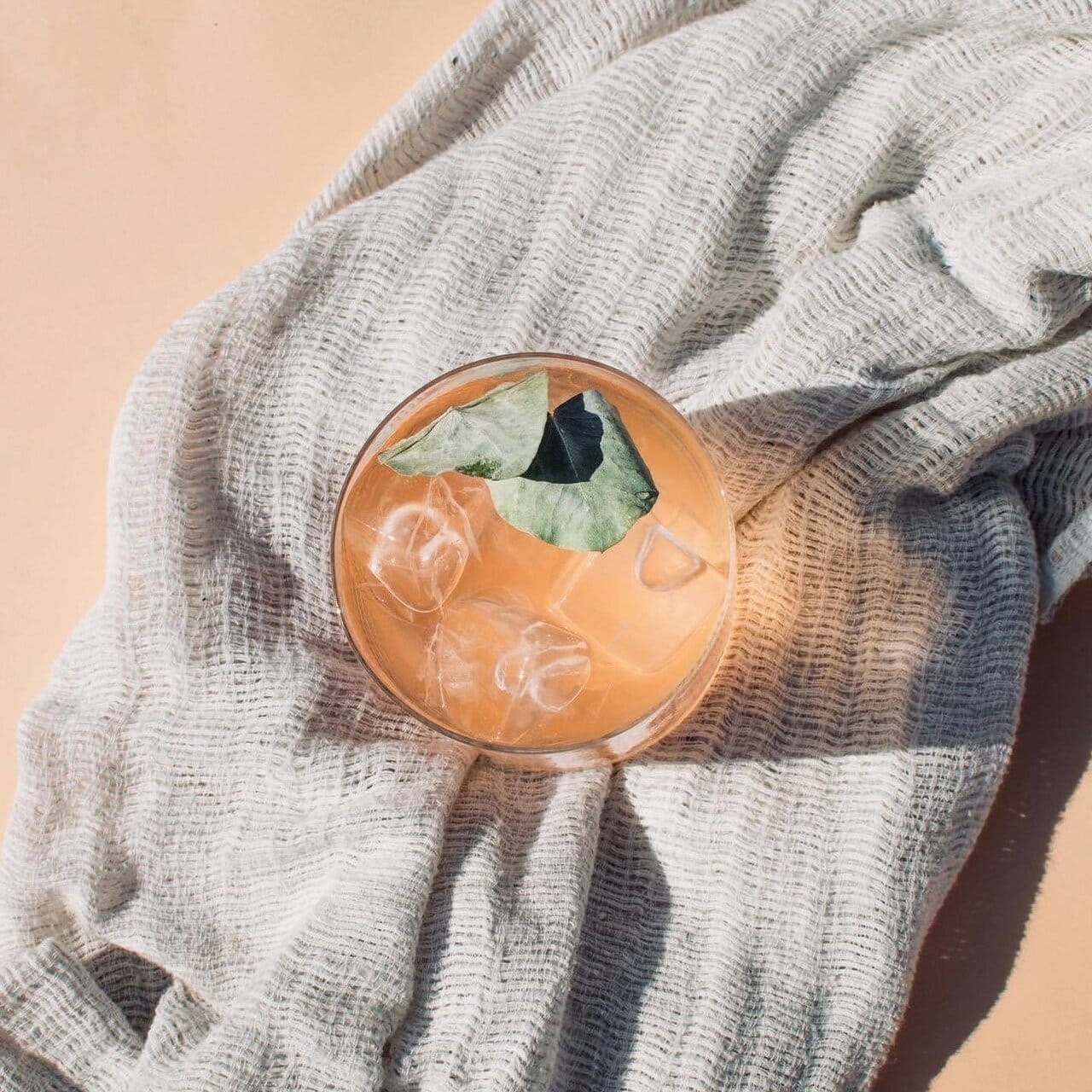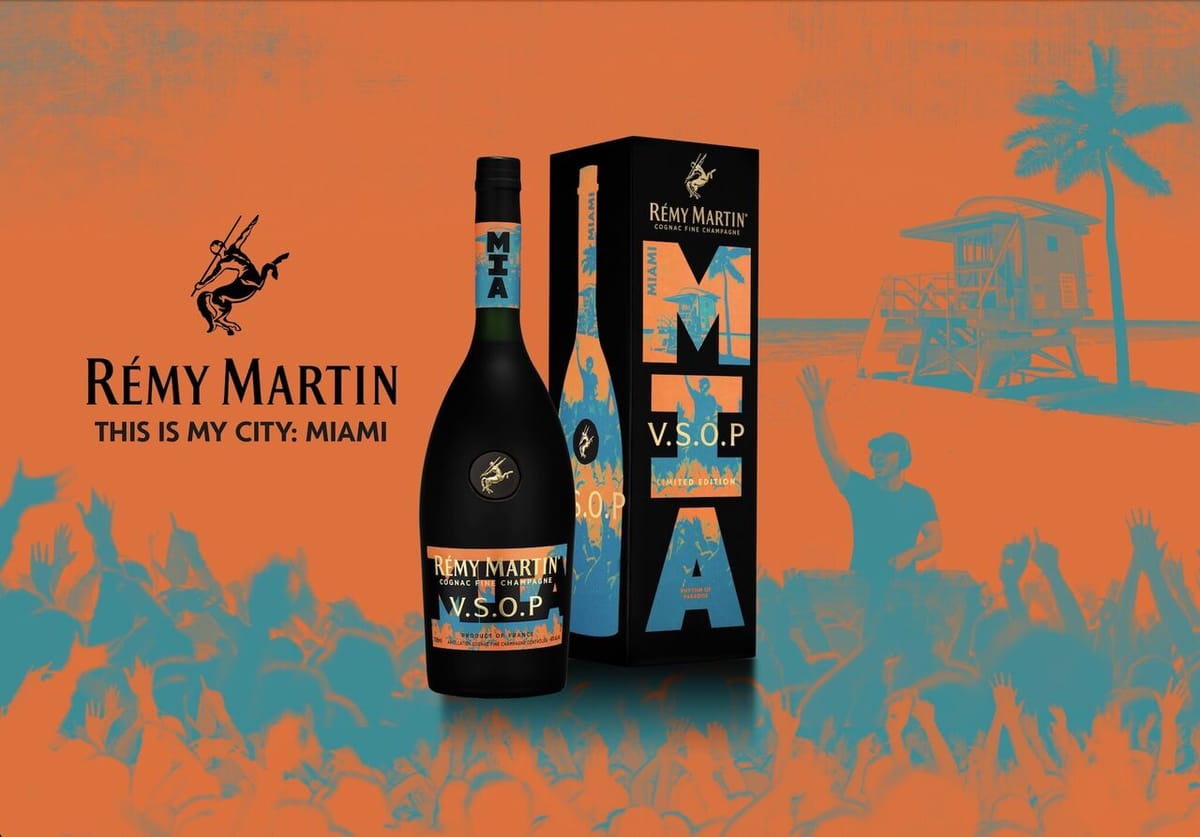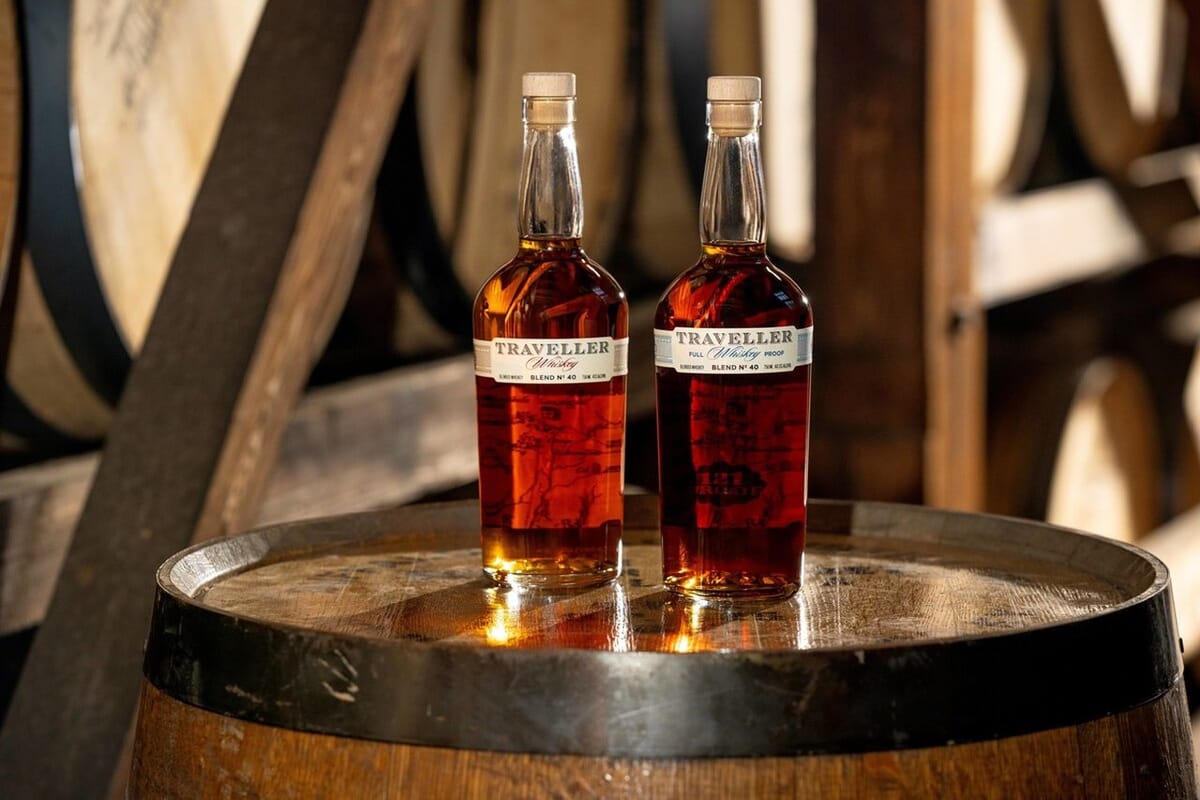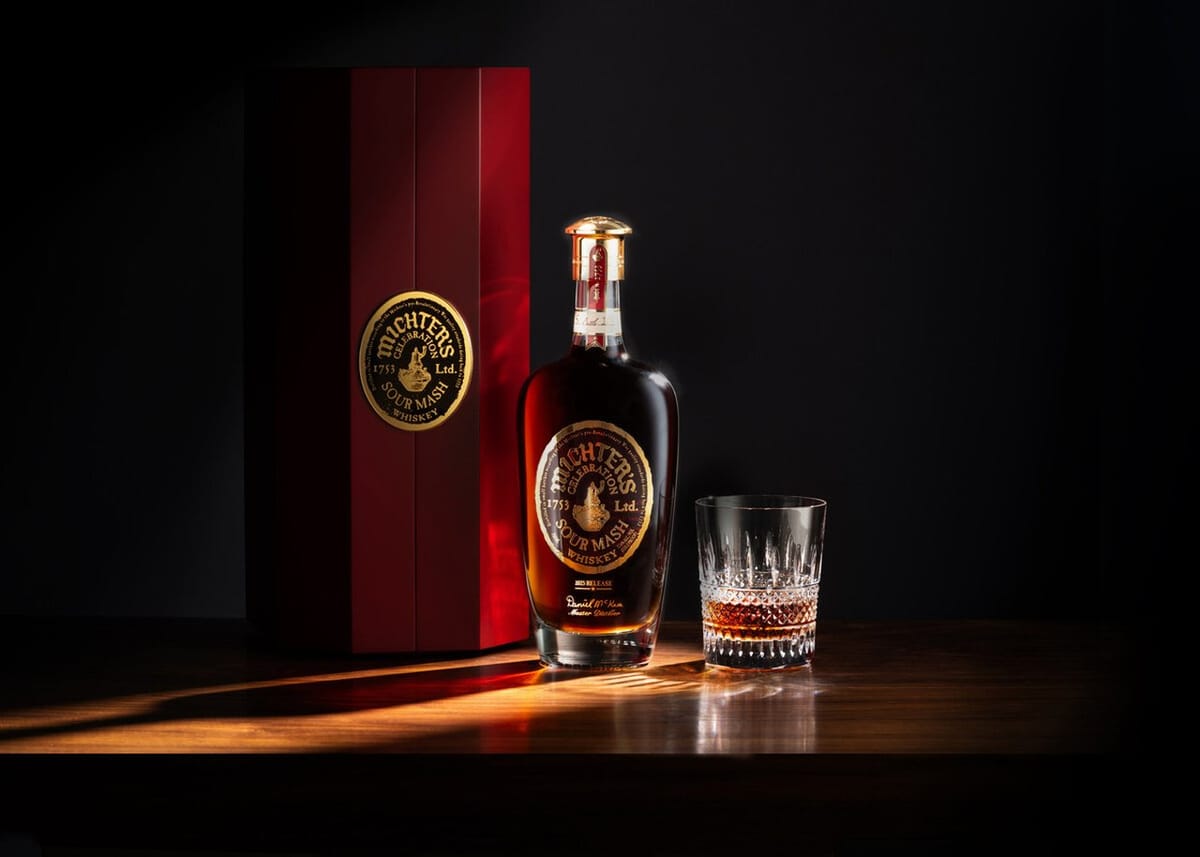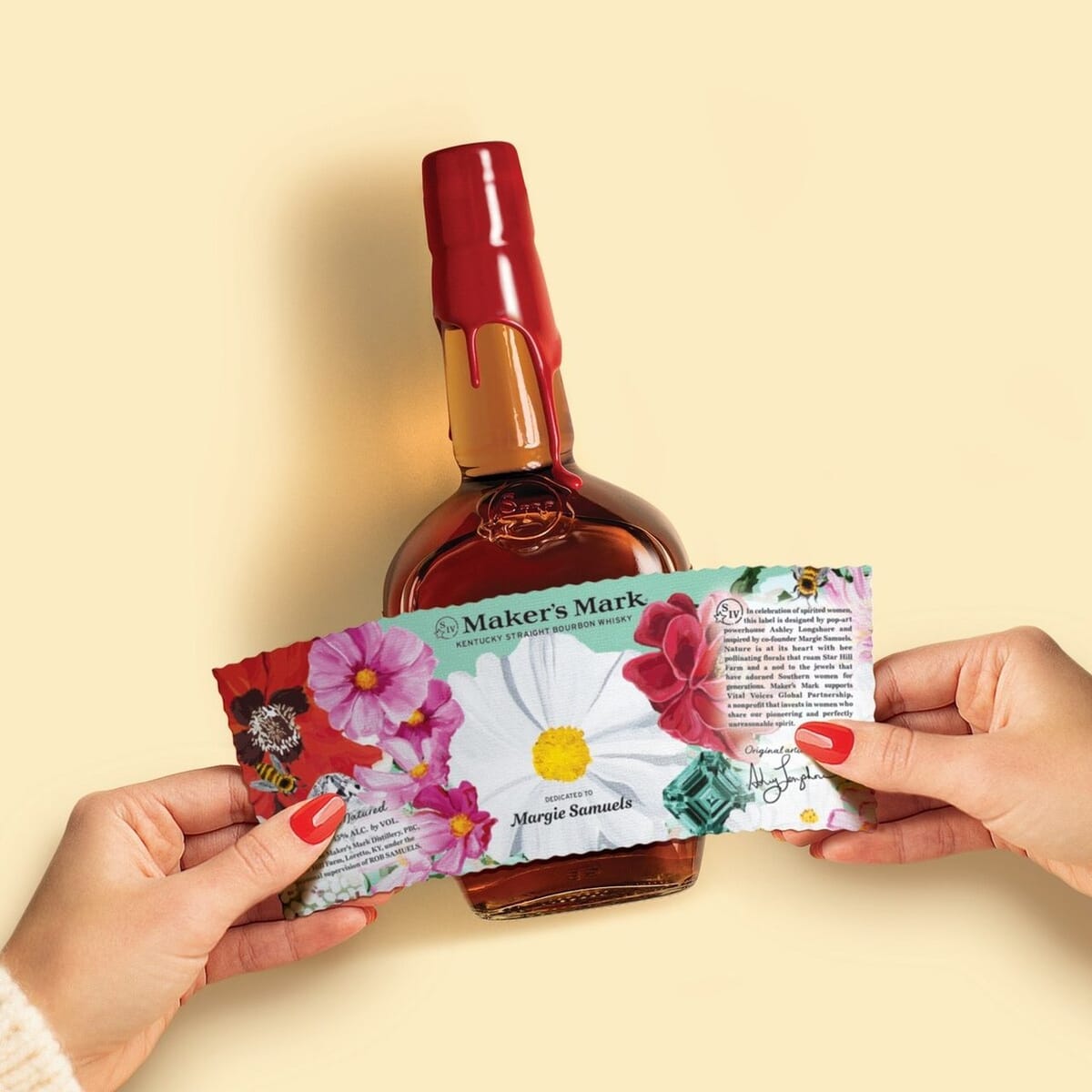Maxime Potfer opens his new bar, Povera, in Nice
Maxime Potfer, former Experimental Cocktail Club manager and key member of the group, opens Povera. For Jigger Daily, he shares the bar’s philosophy, juggling consulting with bartending, and the energy enlivening his hometown.
The Povera philosophy
The name Povera is, first and foremost, a reference to “cucina povera,” a grandmother’s cooking style that uses every part of the ingredients without letting anything go to waste. Much like Arte Povera, we take ordinary products and try to elevate them, restoring their former glory. We plan to apply these principles to our cocktails, aiming to avoid waste entirely and even collaborating with local restaurant owners or producers for items they’d normally throw out. For instance, we might use fava bean pods to make an oil, syrup, or juice. The idea is to be more thoughtful and intentional in our usage. Of course, our end goal remains flavor; creating great-tasting drinks is our primary purpose.
The local aspect is central to this project—here in Nice, we benefit from a vast array of flavors and an incredible variety of nearby producers—along with a commitment to respecting the seasons. When I talk about using local resources, I mean it in a broader sense rather than strictly limiting ourselves to a 25-mile radius. It includes the entire culinary heritage, both historical and contemporary. So if a wonderful product comes from Ventimiglia or a bit farther over the border, we won’t turn it down, because it’s still part of the region and its diverse influences. Moreover, we plan to explore the inland region around Nice, where we can find just about everything.
Then there’s the décor at Povera, following the same ethos: preserving and showcasing the hallmark features of a traditional Provençal home, without resorting to cliché. It should feel current but with a nod to a Japanese design trend I love, wabi-sabi, based on highlighting an element—even if broken or damaged—for its history, its life. We appreciate the beauty of worn objects, and we celebrate them.
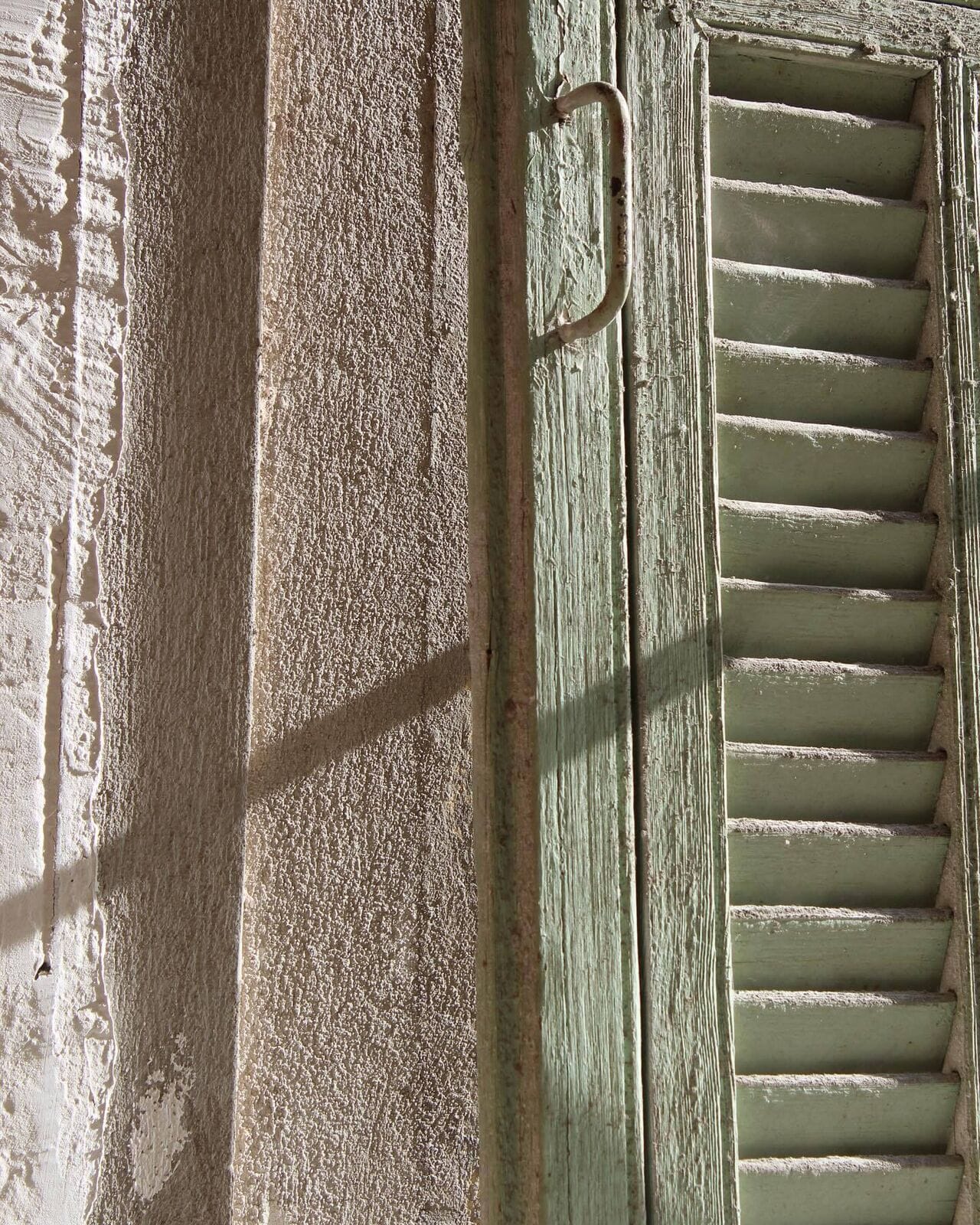
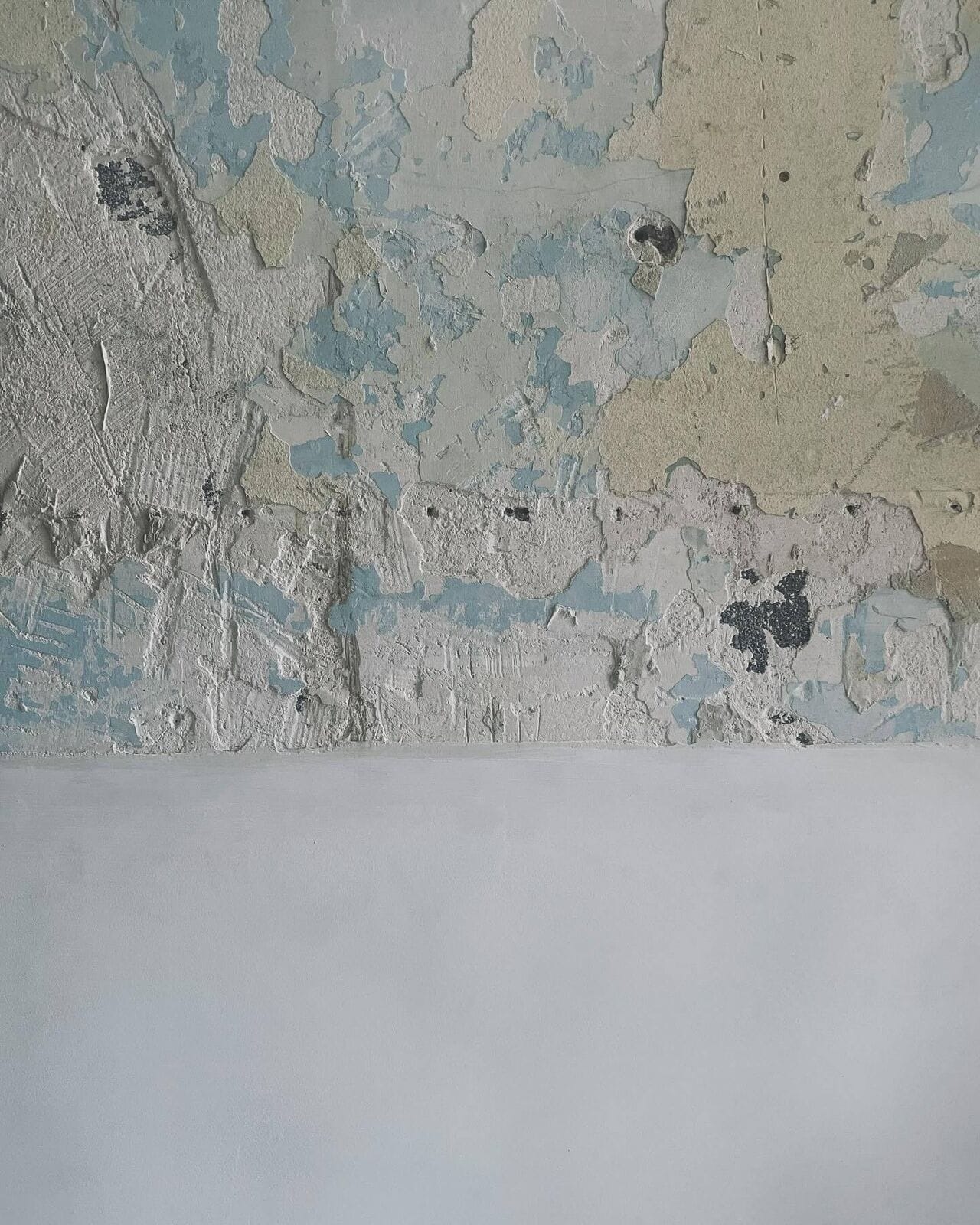
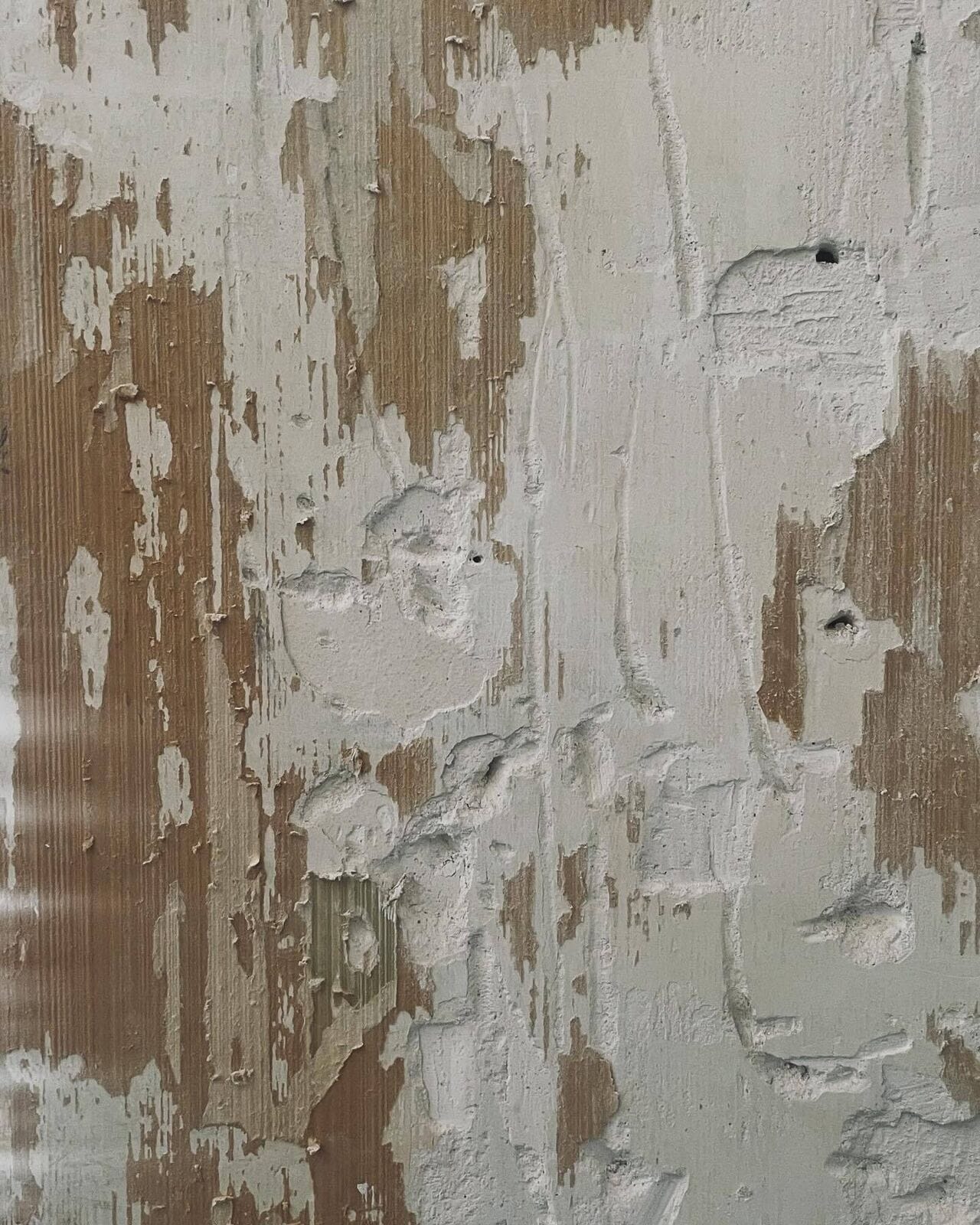
📷 Povera
Layout of the venue
The bar measures about 83 square meters, with around fifteen tables, so between 50 and 60 seats. We also have two or three standing areas, with parts of the old bar serving as counters to lean on, effectively doubling our capacity. Povera can be a cozy, intimate spot or a place for a lively, festive atmosphere.
The basic framework is set, but the place will develop its own character, and it’s up to us to be attentive to how we can optimize it to give guests the best experience. In my experience, it never turns out exactly as planned.
We don’t have a terrace yet. Unlike in Paris, where venues close at 2 am without special permission, in Nice, everything closes by midnight unless you have a special license. So we’re working on getting a late-night license first, and then we’ll apply for outdoor seating.
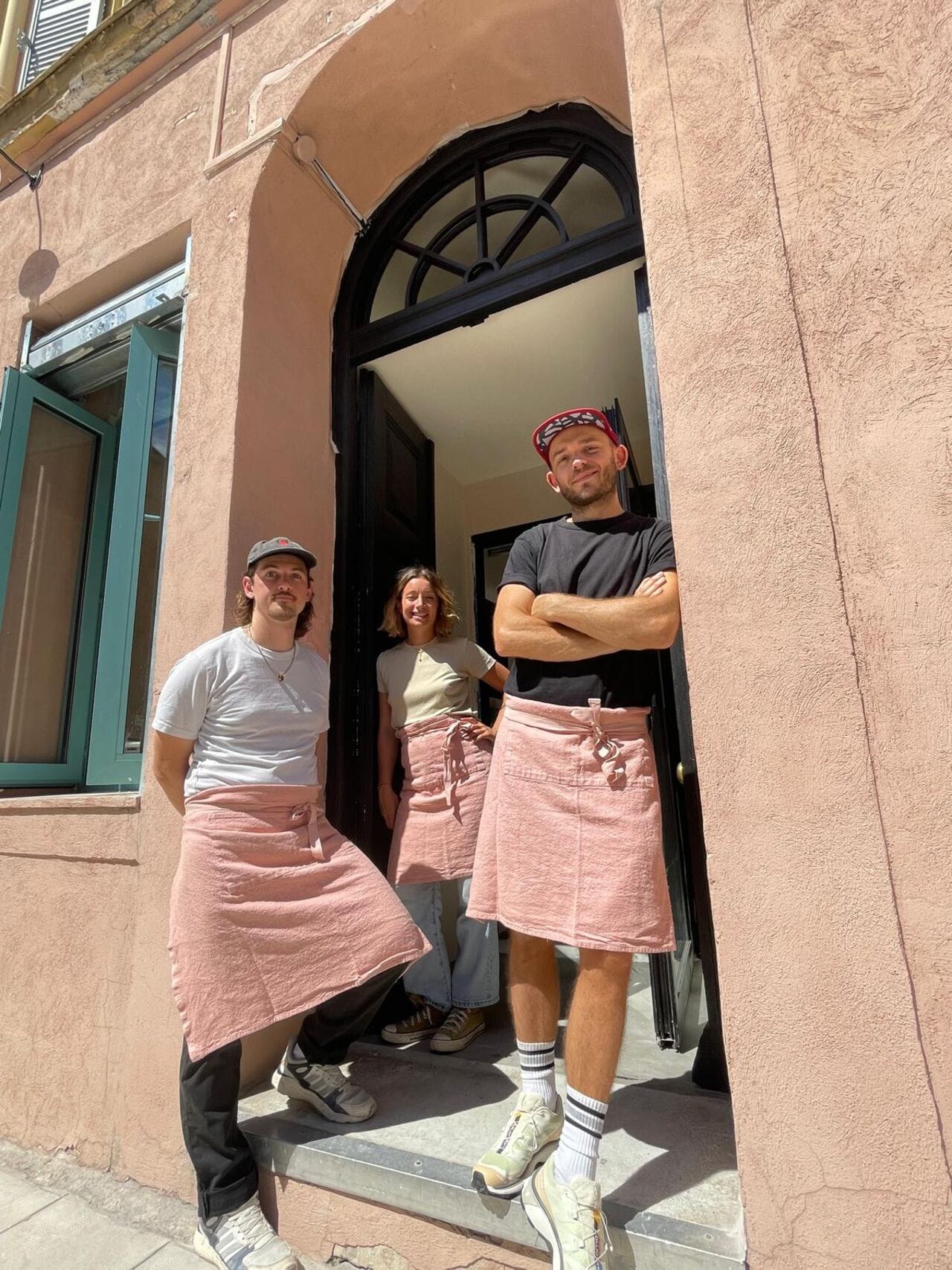
A menu focused on seasonality and local ingredients
Our philosophy is rooted in using local products, minimizing our footprint, making frequent menu rotations, and inching closer to the idea of a family-style kitchen approach.
A cocktail might remain on the menu for only three weeks if seasonality demands it.
Working with small quantities and collecting leftovers from restaurants to use in cocktails sparks creativity. We’re not looking to run everything we come across through the rotovap; rather, we’ll draw inspiration from cooking methods or old family recipe books. Sometimes a citrus broth may replace lemon, because the peel often goes unused even though it makes up 40% of the fruit. We’ll have to be imaginative and view it as a fun challenge, not a limitation.
All cocktail styles will be represented, but I want the menu to move quickly, especially for nonalcoholic drinks. In the beginning, we planned ten cocktails with alcohol and two without, but we may adjust because I really want to destigmatize alcohol-free options. This segment will evolve with the seasons and our whims. If good ideas come, we might offer three or even four zero-proof drinks. The goal is to sell this category as a genuine offering, not just a fallback choice.
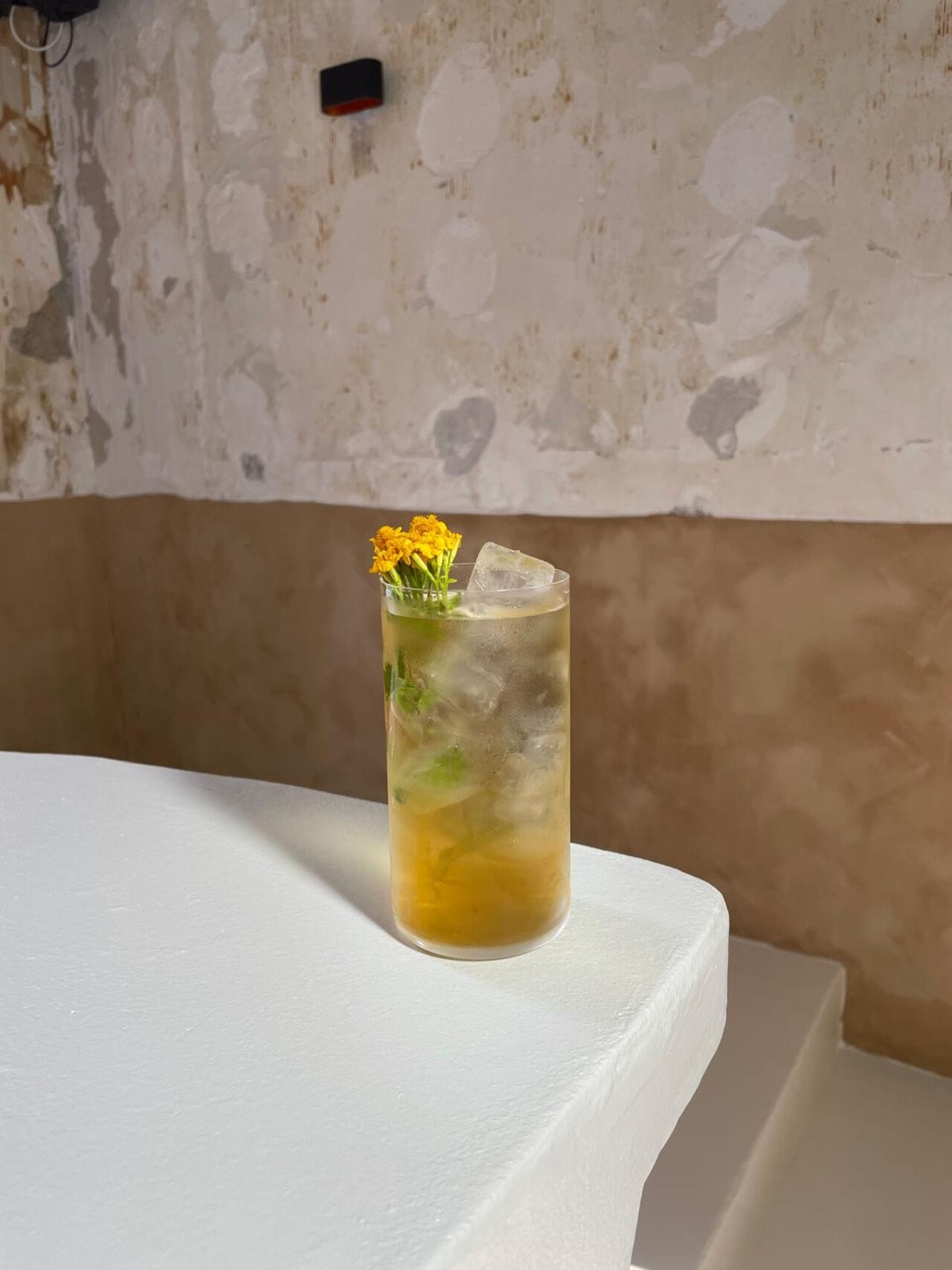
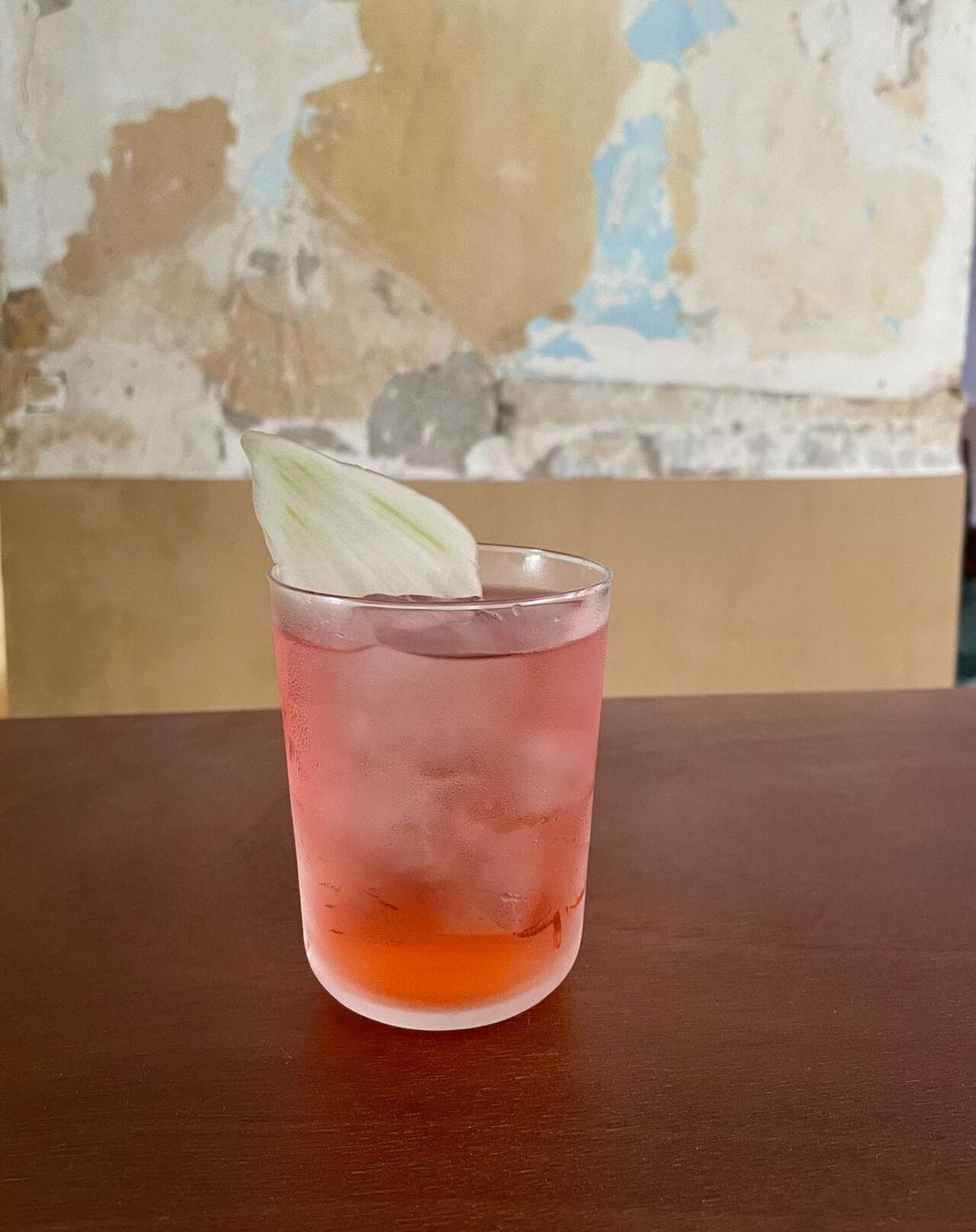
Povera, Nice
When it comes to the choice of spirits, compromising on quality is out of the question. Anything produced in the region—provided it’s good—interests us. For example, a new distillery just opened in Nice, and we’re planning to get a bottle of their gin to show our support. More and more brewers are installing small stills purely for experimentation, though it’s often not entirely legal, but there’s no Nice-based distiller matching what Julhès does with the Distillerie de Paris. Also, since we’re close to Italy, you’ll find a lovely selection of vermouths. But if a spirit is better made elsewhere, we’ll go with that. We won’t try to source agave spirit from the French Riviera; we’ll look to Mexico like everyone else [laughs].
Besides cocktails, we serve a bit of natural wine—maybe two whites, two reds, one orange, and a sparkling—plus beer from regional brewers. As for food, our offering is limited but cohesive. We’re not chefs, but we’ll get quality products—like focaccia from a wonderful bakery working with heritage flours—and make sandwiches using local ingredients. I didn’t want anything that required utensils—just something simple and easy to share.
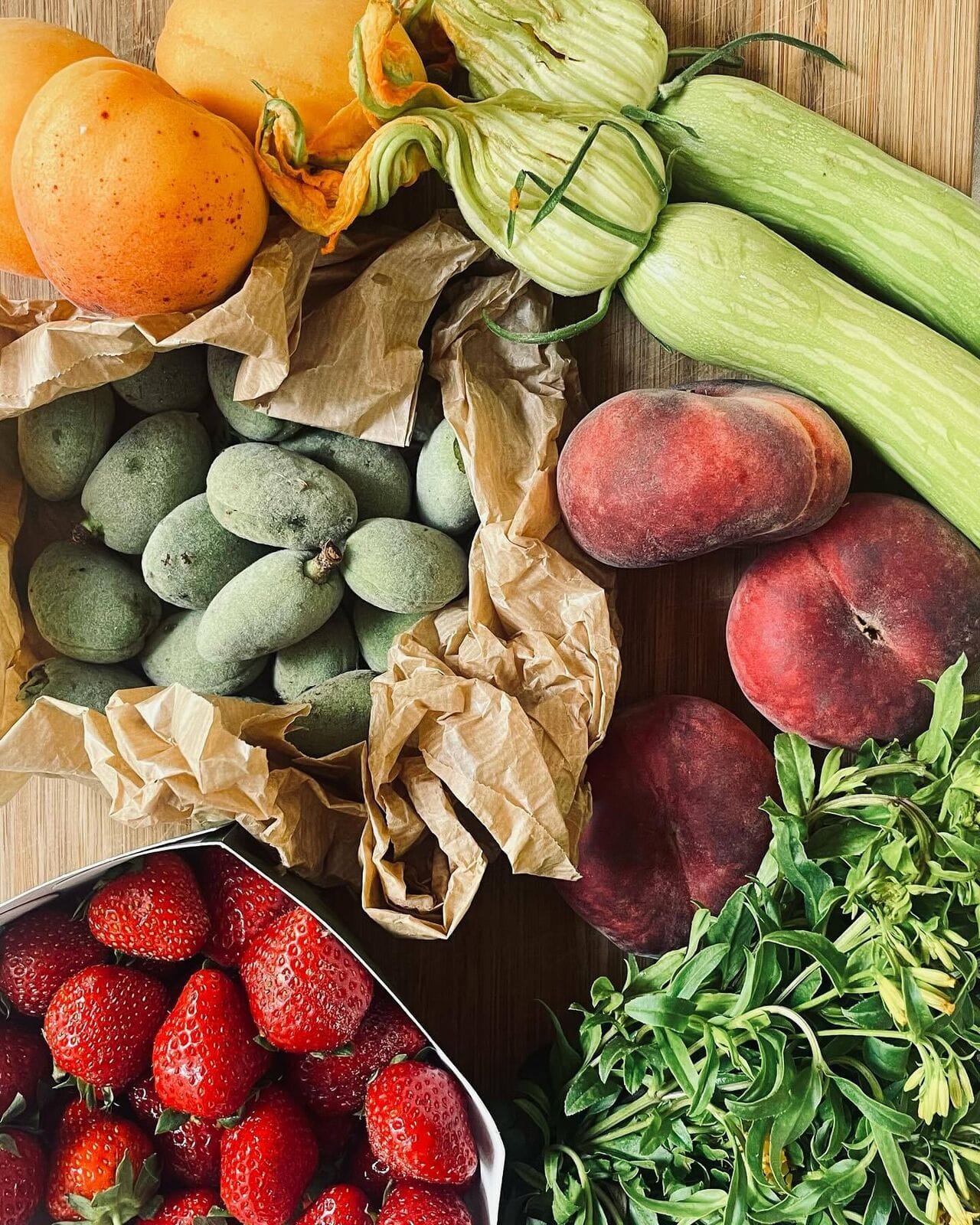
A wide range of inspirations
There aren’t many strict rules when putting together the menu, except that the spirit shouldn’t dictate the rest of the recipe. I explain this to everyone who works with me: the alcohol is an “enhancer” that highlights aromas rather than serving as the central focus or foundation of a cocktail—unless we really aim to showcase a particular spirit, which is a different exercise.
For Povera, there are several approaches: start with a fresh product to highlight, exploring all possible variations to capture different flavor notes, so we end up with a single-ingredient cocktail. Or we might explore pairings: for instance, we wanted to work with fermented honey, which pairs beautifully with toasted seeds. Finally, a concept might spark a recipe: we have a cherry wine inspired by the Italian Fragolino (which is strawberry-flavored), or by a fairly unique local grape from the area above Nice that offers raspberry-like notes. I’ve long wanted to create something similar but built around cherries. To do that, I need fresh cherries in multiple forms, a bit of amaretto to evoke that subtle cherry-pit note, plus sherry and a wine-based aperitif.
When we’re creating the menu, we know certain types of drinks or glass styles will be more popular than others, but that doesn’t necessarily make them the bar’s signature drinks. Our customers will decide that. Also, Nice is still a relatively new market for these kinds of cocktails, and I’m excited to see how guests respond to our offerings and stay open to their preferences. But we hope some of our menu items become classics, because we’re really quite fond of them.
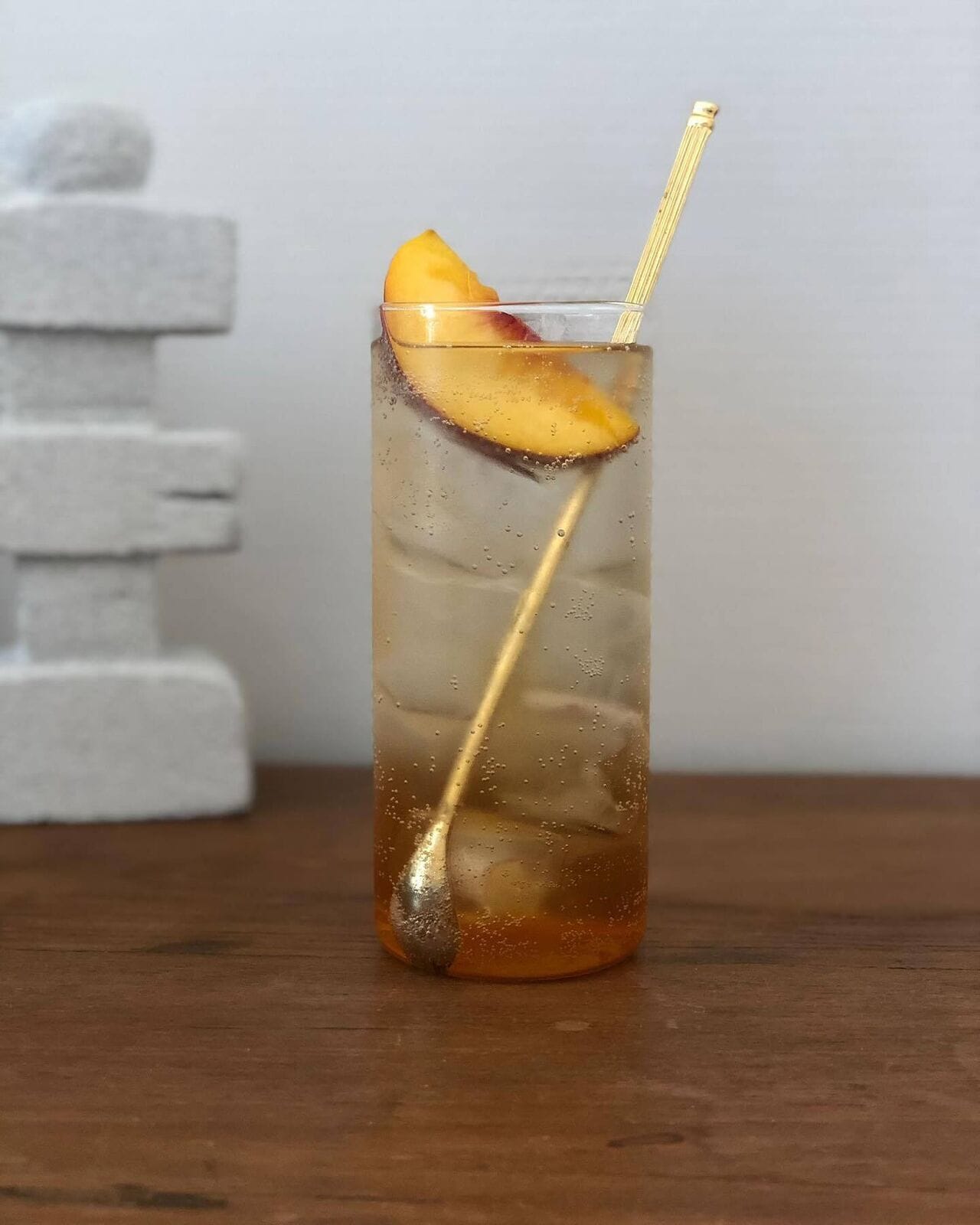
Key to building a lasting team
The team will have three or four members, aiming for stability and loyalty. I don’t want people leaving after two months. I try to hire young locals from Nice’s excellent hospitality school, choosing personalities over immediate skills or knowledge. In my view, training is the key to retaining staff. They need to love the place enough to stick around and share my enthusiasm.
To start, I called Damien Lemercier, who worked with me at Experimental, where he was Experimental Cocktail Club Traveller. Damien worked at New York’s Double Chicken Please and oversaw some openings in Mexico. He’s a bit of a globe-trotting bartender. I asked him to handle the first few months of opening alongside me, to help implement processes; he’s someone I can trust completely. This period will let us demonstrate what I want from the bar, show what we can do, and attract new staff. So the team currently consists of Damien plus another person behind the bar, with part-timers on weekends.
I’ll be behind the bar every evening. After helping others open their places—like Margot Lecarpentier with her Combat project, for example—it’s important I devote time to Povera, my first “baby.” Once we have a strong core team, I can occasionally step away for two days for consulting appointments and come back with peace of mind. Right now, I’m very motivated and confident in the bar’s potential and in the team we’re building. I believe the vision for Povera and the model we’re offering have real substance.
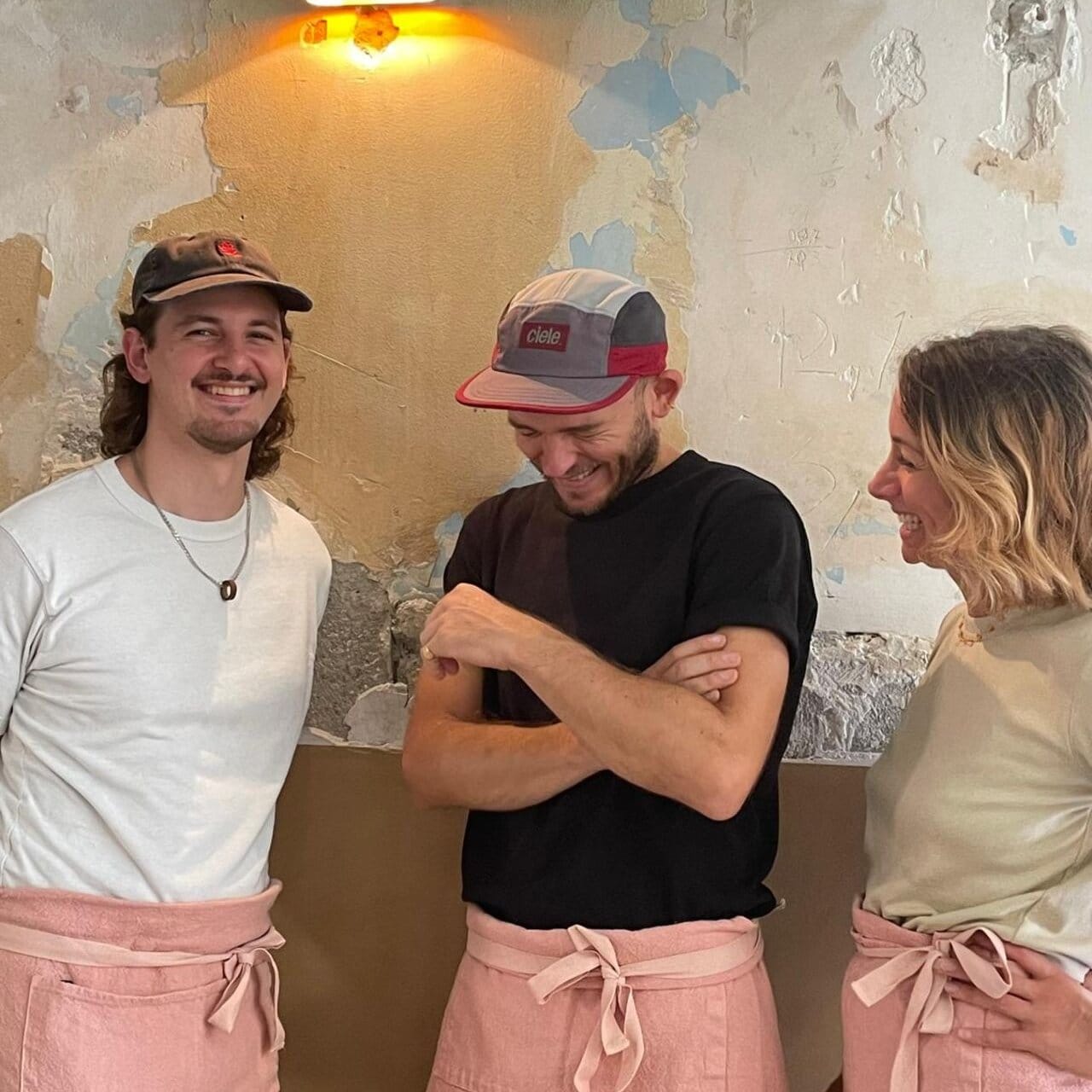
Bartender by night, consultant by day
My consulting work developed rather organically. I had been managing the Experimental Cocktail Club in Paris for some time, and when the group experienced a boom, they asked me to design the workspaces for the new venues and create the initial menus. Over time, the responsibilities grew until I oversaw all the group’s venues and openings for the Experimental Group.
I started getting more and more requests for that kind of project, because about eight years ago, nobody else was offering such services. And the Experimental Group gave me a solid reputation and visibility. Eventually, I decided to launch my own business while still working with the group, and it expanded significantly.
The consulting side is very stimulating because it’s always a little challenge. I love adapting to each project, rather than handing out standard solutions. Considering the country of operation, the clientele, and the context is creatively rewarding. Over time, I transitioned from consultant to project manager. What I love about my career evolution is that new elements keep getting added, either at the client’s request or due to circumstances. Now I can deliver some projects fully turn-key, meaning I focus specifically on bar openings (budget management, working with architects, designing technical layouts for kitchens). Every mission is different, and I’m lucky to learn alongside so many different contributors. Ultimately, there’s a real sense of achievement when you see a place you’ve worked on come to life.
With my company, I often work remotely—from home or a café—and visit a project about three times: once to check the construction, once right before launch, and once to help with the opening. Because of this, I no longer had a strong reason to stay in Paris. Meanwhile, I had this deep attachment to Nice, where I’m originally from, and I noticed the local scene picking up. I thought this was the right time to open a place here. I started scouting venues, thinking it would help me meet local players and get a feel for the market. On my very first visit, I stumbled on this gem and had to decide quickly. It wasn’t planned for that moment, but circumstances took over. I’m continuing with consulting because I do that by day, while the bar is my nighttime focus. I kind of like taking on a lot of work; it runs in the family [laughs].
Nice, the new Marseille?
Nice doesn’t really have any historic classic bars. A few spots have always served cocktails, but they’re mostly hotel bars like the Negresco. Some hotels have tried opening up and expanding their bar offerings, but I find that people from Nice aren’t yet—or may never be—like Parisians who drop by hotels just for a drink. To draw a distinction I’m not too keen on, you have very few purely “mixology”-style cocktail bars. One or two people have been incredibly proactive on that front, graduates from Nice’s hotel school, which is an outstanding institution for bar studies and a genuine talent pool. In fact, when I was at the Experimental Cocktail Club, I hired a good number of them, notably for London. So there was a real brain drain, as there weren’t many local opportunities. The existing options leaned heavily on the speakeasy style, which might not really suit a city with so much sunshine.
A bartender from Nice, Matthieu Pluta, ran two venues that did relatively well, but he replaced them with a restaurant (Icô, ed. note) that also serves cocktails. The same goes for Babel Babel which offers great cocktails, but it’s also a restaurant. So the pure cocktail bar aspect is quite limited, even though I believe there’s strong local demand.
Today, many people are returning to the city—Niçois who lived in Paris or abroad—and they’re looking for a place like ours. These are patrons of the bistronomic restaurants (currently booming) opened by young talents who spotlight Nice’s culinary traditions without being stuck in the past. I’m convinced there’s a real parallel between those restaurants and the cocktail bar concept, where you focus on quality products at a fair price.
We’re lucky to arrive on the scene at this moment. A lot of people compare it to Marseille. Nice has so much promise, with a wonderful standard of living, surroundings, and environment. Even the hotel industry is bustling: Mama Shelter opened impressively not long ago, as did l'Hôtel du Couvent. We’re on the verge of something big.
From grand hotels to the Experimental Group
Originally, I was in a sports academy and considered it my career path. But my entire family has always worked in luxury hospitality: my mother was head housekeeper in places like Georges V and Le Bristol, and then in the south of France. My stepfather was head chef on the Orient Express for 38 years. So I’ve always had an affinity for service and fine things, whether food or beverages. When it was time to choose a real career, I naturally went into a hotel management program hoping to become a hotel director.
I worked at the Grand Hôtel in Saint-Jean-Cap-Ferrat, and upon graduating I had several lovely offers for someone my age. But I couldn’t picture myself behind a desk all day, having just left an athletic lifestyle. Working in a bar interested me, so I bought every available book on the subject. Rather naively, I googled “best bar in France,” and the answer was the Plaza Athénée. After politely pestering them, I landed a position there, starting at the bottom as a bar commis for a few months. I did prep, served trays, and was rarely behind the bar—except near the end. I stayed for about a year and a half, between 2009 and 2011.
When I got to Paris, I happened to move near Montorgueil, and everyone was talking about this amazing neighborhood spot called the Experimental Cocktail Club. Naturally, I felt, “Okay, I work at the best bar in France, but I have to give it a try.”
I remember my first time there vividly: it was a Thursday night, Michael Mas was behind the bar, I didn’t recognize any of the bottles, I didn’t understand the menu, but the drinks were delicious and the staff was delightful. I realized right then I wanted to work there, so my free nights were spent at the counter, tasting everything and asking them questions. Once again, I pestered them until they gave me a job, and when a slot opened, I quit everything to join as a bartender. The bar manager and assistant manager left soon after—9 months and a year respectively—and suddenly I found myself in charge around age 20.
One of the Experimental Group’s greatest strengths is that they don’t judge you by your age, but by trust and results. I’ll be forever grateful for that mindset. I learned a ton, sometimes the hard way, and that still helps me approach work resourcefully today.
Opening Wednesday, July 17 at 6 pm
